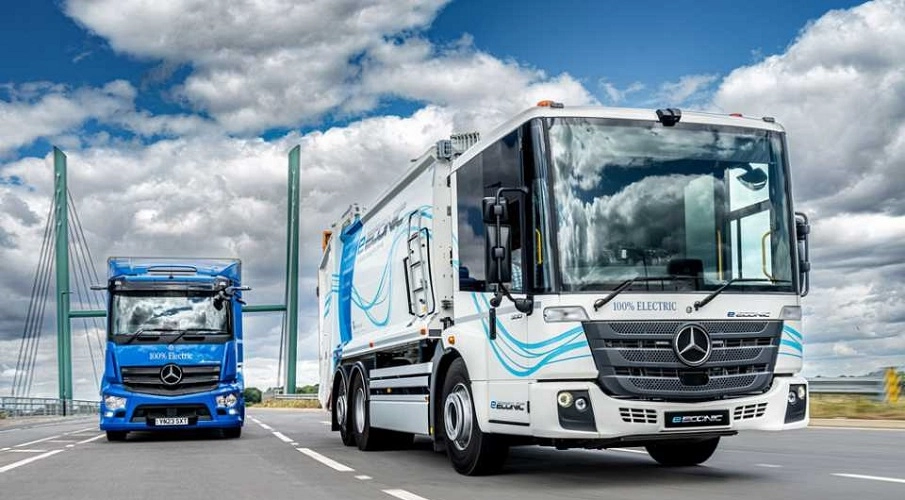The Environment Committee has overwhelmingly endorsed its proposals to strengthen the EU’s CO2 emission standards for new heavy-duty vehicles, including buses, trucks, and trailers.
The report was adopted on Tuesday with 48 votes in favor, 36 against, and one abstention.
It is anticipated that reinforcing CO2 emission reduction requirements for heavy-duty vehicles (HDVs) and expanding the necessary charging and refueling infrastructure will play a vital role in reducing emissions across the entire HDV fleet, contributing to the ambitious EU climate neutrality target for 2050.
Tougher Goals
MEPs are advocating for stricter CO2 emission reduction targets for medium and heavy trucks, including professional vehicles such as garbage trucks, dump trucks, or concrete mixers, as well as buses.
These targets have been set at 45% for the 2030-2034 period, 70% for 2035-2039 (compared to the Commission’s proposed 65%), and a robust 90% from 2040.
MEPs have agreed that, starting from 2030, all newly registered urban buses should be zero-emission vehicles.
They have also considered the possibility for Member States to request a temporary exemption until 2035 for urban buses powered by biomethane, subject to strict conditions related to refueling infrastructure availability and fuel origin.
Additionally, a “Yearly Forum on Zero-Emission Heavy Vehicles” is proposed to efficiently and cost-effectively address the deployment of fueling and charging infrastructure.
By the end of 2026, the Commission should evaluate the potential development of a methodology to report CO2 emissions throughout the life cycle of new heavy-duty vehicles.
Member of the European Parliament Bas Eickhout (The Greens/European Free Alliance Group), stated: “We are providing clarity to one of Europe’s major manufacturing industries and a clear incentive to invest in electrification and hydrogen. We build on the Commission’s proposal but with more ambition.”
“We aim to extend the scope of the standards to include small and medium trucks and professional vehicles, sectors that are particularly important for urban air quality, and we are adapting several objectives and benchmarks to fit the reality as the transition progresses faster than expected,” he added.
MEPs are expected to adopt the report during the November II plenary session in 2023, marking Parliament’s negotiating position with EU governments on the final shape of the legislation.
Background
On February 14, 2023, the Commission presented a legislative proposal to establish CO2 standards for heavy-duty vehicles from 2030 to help achieve the EU’s ambitious climate neutrality goal for 2050 and reduce the demand for imported fossil fuels.
Heavy-duty vehicles, such as trucks, urban buses, and long-distance buses, account for over 25% of greenhouse gas emissions (GHGs) from road transport in the EU and contribute to more than 6% of the EU’s total GHG emissions.
Read more: T&E: “EU CO2 Standards Not Encouraging Electric Truck Production”







